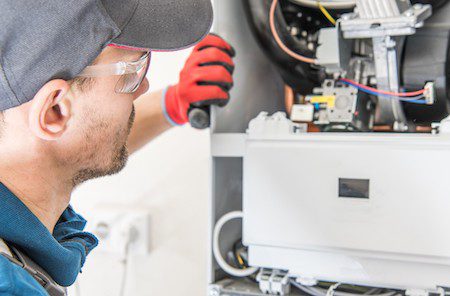
The Ultimate Guide to HVAC Repair: Tips and Tricks for a More Efficient System
Maintaining an efficient HVAC system is crucial for keeping your home comfortable throughout the year. Regular maintenance and timely repairs can help improve your system’s efficiency, reduce energy consumption, and extend its lifespan. This ultimate guide to HVAC repair will provide you with tips and tricks for a more efficient system, from DIY maintenance tasks to know when it’s time to call a professional.
COMPARE QUOTES NOWUnderstanding Your HVAC System
Before diving into repair tips, it’s essential to understand the main components of an HVAC system. These 4 main parts include:
- Furnace: Generates heat and circulates it throughout your home using a blower and ductwork.
- Air conditioner: Cools your home by removing heat and humidity from the indoor air.
- Ductwork: A network of tubes or channels that distribute heated or cooled air throughout your home.
- Thermostat: Controls the temperature settings and regulates your HVAC system’s operation.
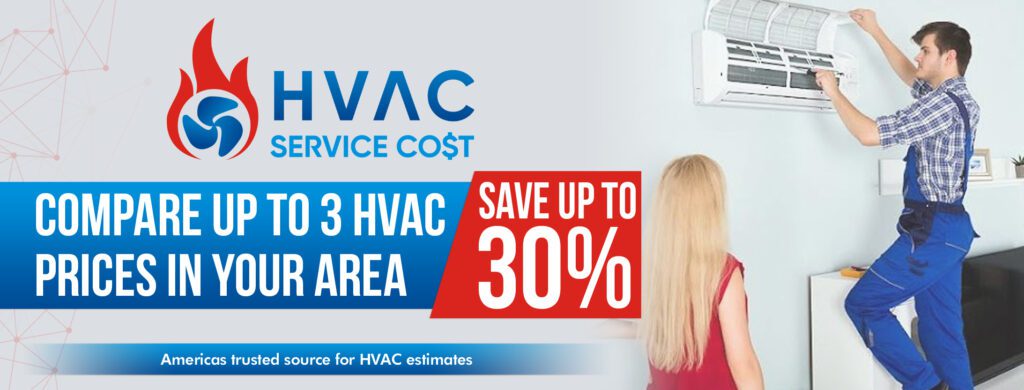
DIY Maintenance Tips
Performing regular maintenance on your HVAC system can help prevent many common issues and improve its efficiency. While some issues may require a professional HVAC technician there are some minor issues that can be easily fixed at home. Here are some simple tasks you can do yourself:
Change Your Air Filters
- Replace air filters every 1-3 months, depending on your system’s requirements and your household conditions (e.g., pets, allergies).
- Regularly inspect filters for dirt and debris, and replace them if they appear clogged or dirty.
Clean Your Outdoor Unit
- Keep the area around your outdoor unit clear of debris, leaves, and plants to ensure proper airflow.
- Gently clean the unit’s fins with a soft brush or hose to remove dirt and debris.
Inspect Your Ductwork
- Periodically check your ductwork for any visible damage, such as cracks or disconnected sections.
- Ensure that your ducts are properly sealed and insulated to prevent energy loss.
Test Your Thermostat
- Test your thermostat to ensure it’s functioning correctly and maintaining the desired temperature.
- Consider upgrading to a programmable or smart thermostat for improved energy efficiency and convenience.
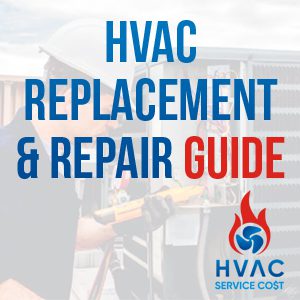
When to Call a Professional
While DIY maintenance can help improve your HVAC system’s efficiency, some repairs and tasks should be left to professionals. Here are some situations when you should call an HVAC technician:
COMPARE QUOTES NOWAnnual Maintenance
Schedule an annual HVAC maintenance visit to ensure your system is running efficiently and to identify potential issues before they become costly problems. A professional technician will inspect, clean, and tune your system, including checking refrigerant levels, cleaning the evaporator and condenser coils, and lubricating moving parts.
Unusual Noises or Odors
If you notice strange noises (e.g., banging, screeching, or hissing) or unpleasant odors coming from your HVAC system, contact a professional for an inspection and diagnosis.
Poor Performance or Inefficiency
If your system isn’t providing adequate heating or cooling, or if you notice a significant increase in your energy bills, consult an HVAC professional to identify and resolve the issue.
Frequent Cycling or Constant Running
If your HVAC system frequently cycles on and off or runs continuously, this may indicate a problem that requires professional attention.
Tips for Hiring an HVAC Technician
When hiring an HVAC technician, consider the following tips to ensure you choose a qualified and reliable professional:
- Check credentials: Verify that the technician is licensed, insured, and certified. Look for certifications from organizations such as North American Technician Excellence (NATE) or the Environmental Protection Agency (EPA).
- Ask for referrals: Seek recommendations from friends, family, or online review sites to find a reputable HVAC technician.
- Request multiple quotes: Obtain quotes from at least three different HVAC technicians to compare pricing and services.
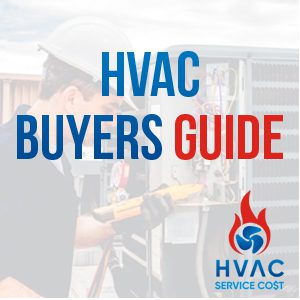
Understand Warranties and Guarantees
Inquire about warranties or guarantees on parts and labor. A reputable technician should stand by their work and provide clear information on what is covered and for how long.
Check for Special Offers and Rebates
Some HVAC companies offer special promotions or rebates for certain services or energy-efficient equipment upgrades. Be sure to ask about any available offers when requesting a quote.
COMPARE QUOTES NOWEnhancing Your HVAC System’s Efficiency
In addition to regular maintenance and timely repairs, there are other ways to improve your HVAC system’s efficiency:
Upgrade Your Equipment
If your system is more than 10-15 years old, consider upgrading to a new, energy-efficient model. Modern HVAC systems can offer significant energy savings and improved performance.
Install a Zoned HVAC System
A zoned system allows you to control the temperature in different areas of your home independently, improving comfort and efficiency.
Add Proper Insulation
Ensure your home has adequate insulation to prevent heat loss in the winter and heat gain in the summer. This will reduce the strain on your HVAC system and improve its efficiency.
Seal Windows and Doors
Check for drafts around windows and doors and seal any gaps with weatherstripping or caulk. This will help maintain a consistent indoor temperature and reduce your HVAC system’s workload.
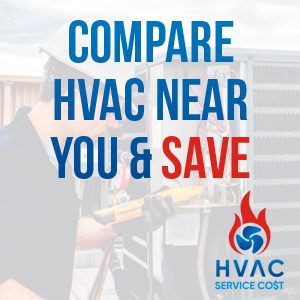
By following this ultimate guide to HVAC repair, you can enjoy a more efficient and reliable heating and cooling system. Remember that regular maintenance, timely repairs, and strategic upgrades can significantly improve your system’s performance, reduce energy consumption, and extend its lifespan.
Understanding the Costs of HVAC Repair
HVAC repairs can vary widely in price depending on the issue, the age of your system, and the labor rates in your area. To help you prepare for potential repair costs, this section will cover the factors that influence pricing and provide average cost ranges for common repairs.
COMPARE QUOTES NOWFactors Influencing HVAC Repair Costs
Several factors can impact the cost of HVAC repairs, including:
Type of Repair
- Some repairs, such as replacing a thermostat or cleaning a clogged drain line, are relatively simple and inexpensive.
- In contrast, more complex repairs, like replacing a compressor or heat exchanger, can be more costly.
Age of the System
- Older HVAC systems may require more frequent repairs, and some components may be more challenging to find or more expensive to replace.
Labor Rates
- Labor rates can vary depending on your location and the technician’s experience.
- Always ask for a detailed quote that outlines labor and material costs.
Emergency or After-Hours Service
- If you require emergency or after-hours repair service, you may be charged a premium rate for the technician’s time.

Average Costs for Common HVAC Repairs
While repair costs can vary widely, here are some average price ranges for common HVAC repairs:
- Thermostat replacement: $100 – $300
- Blower motor replacement: $400 – $600
- Evaporator coil replacement: $600 – $1,000
- Capacitor or contactor replacement: $150 – $300
- Condensate pump replacement: $250 – $400
- Compressor replacement: $1,000 – $2,500
- Heat exchanger replacement: $1,000 – $3,500
Keep in mind that these figures are approximate and can vary depending on your specific situation. It’s always best to obtain multiple quotes from qualified HVAC technicians to get a more accurate estimate for your repair needs.
Tips for Reducing HVAC Repair Costs
While some HVAC repairs are unavoidable, there are steps you can take to minimize costs and prolong the life of your system:
- Schedule regular maintenance: Preventative maintenance can help identify and address potential issues before they become costly repairs.
- Change air filters regularly: A clogged air filter can reduce your system’s efficiency and cause premature wear on components.
- Upgrade to an energy-efficient system: If your HVAC system is more than 10-15 years old, consider upgrading to a new, energy-efficient model to reduce repair costs and energy consumption.
By understanding the factors that influence HVAC repair costs and taking steps to maintain your system, you can better budget for and manage any necessary repairs. Regular maintenance, timely repairs, and strategic upgrades can significantly improve your system’s performance, reduce energy consumption, and extend its lifespan.
COMPARE QUOTES NOW


Leave a Reply